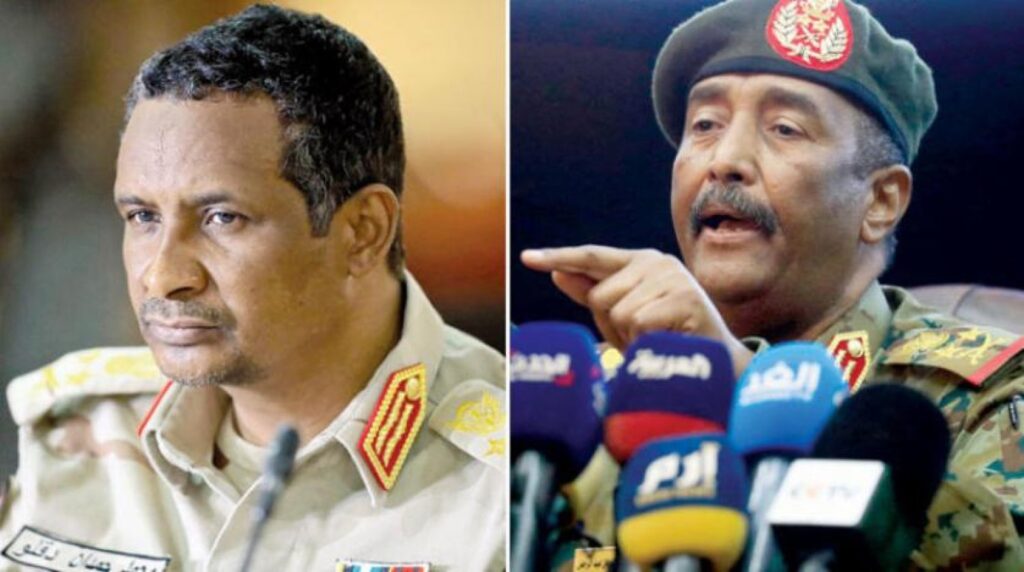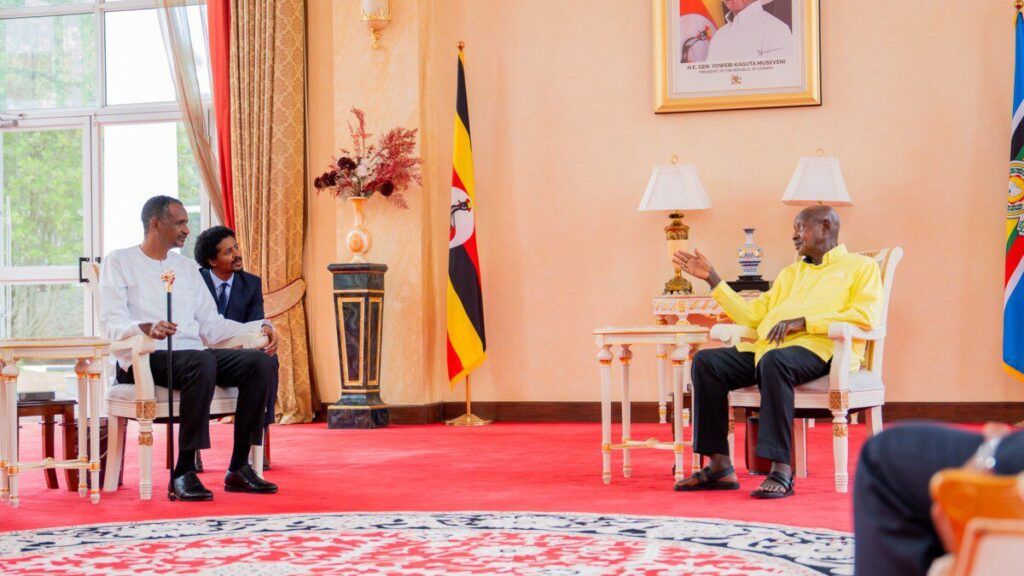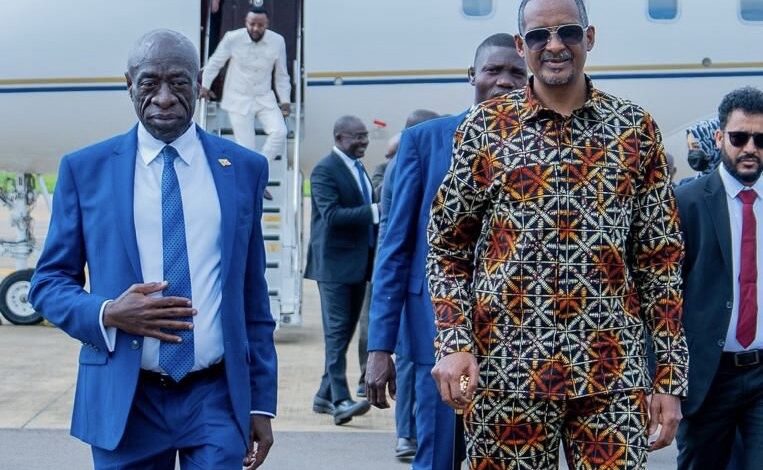
Commander of Rapid Support Forces Gen. Mohammed Hamdan Dagalo has reportedly agreed to a face-to-face meeting with Sudan’s military chief Gen. Abdel-Fattah Burhan as part of establishing a cease-fire and kickstarting political discussions to put an end to the devastating war in the country.
Rapid Support Forces in a post on X on Monday announced that “General Dagalo agreed to the principle of the meeting, provided that al-Burhan attends in his capacity as the SAF commander, rather than as the president of the Sovereign Council.”
The turmoil in Sudan erupted following heightened tensions between military chief Gen. Abdel-Fattah Burhan and Gen. Mohammed Hamdan Dagalo resulting in open conflict in mid-April across the country, notably in the capital, Khartoum.
The ongoing conflict has inflicted severe damage on the nation and claimed the lives of approximately 9,000 people as reported by the United Nations in October. However, activists and medical groups assert that the actual toll is considerably higher.
In a meeting of the leaders of the Inter-Governmental Authority on Development, a grouping of East African countries, both Sudanese generals agreed to “an unconditional cease-fire and resolution of the conflict through political dialogue,” and to hold a “a one-to-one meeting,” the bloc said in a statement Sunday.
The statement released did not delve into further specifics, such as the precise timing and location of the impending meeting between the two generals.
The administration of US President Joe Biden has expressed appreciation for the generals’ commitment to a cease-fire and their intention to hold a direct meeting. Matthew Miller, spokesperson for the State Department, urged them to adhere to these commitments and engage in discussions promptly.
IGAD, in collaboration with Saudi Arabia and the United States, is actively engaged in mediation efforts to bring an end to the conflict. The US recently facilitated indirect talks between the conflicting parties in early November.
More than 6 million people were forced out of their homes, including 1.2 million who have sought refuge in neighboring countries, according to the UN figures.




